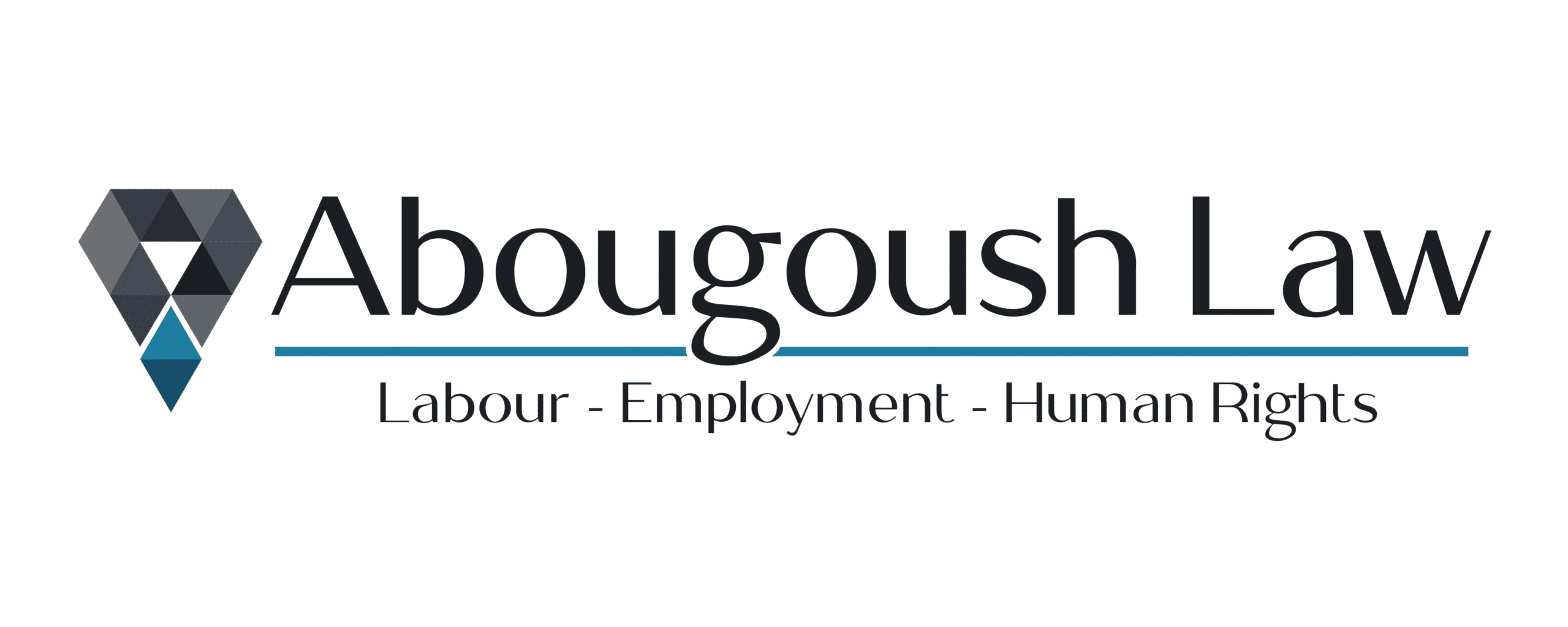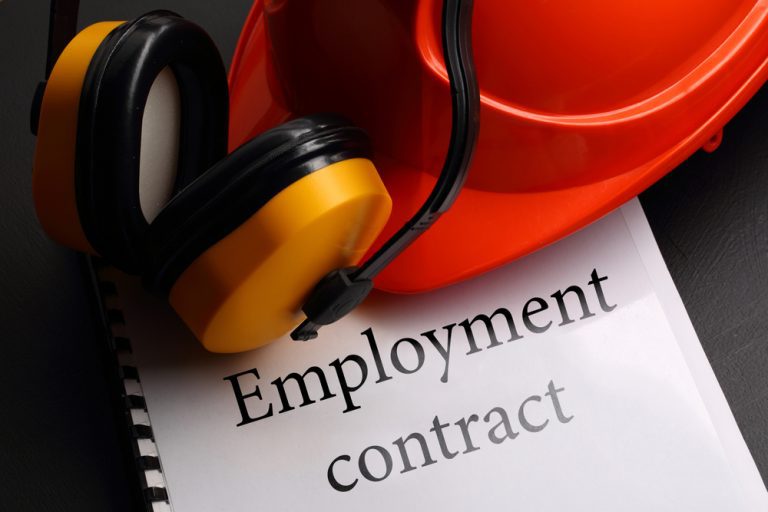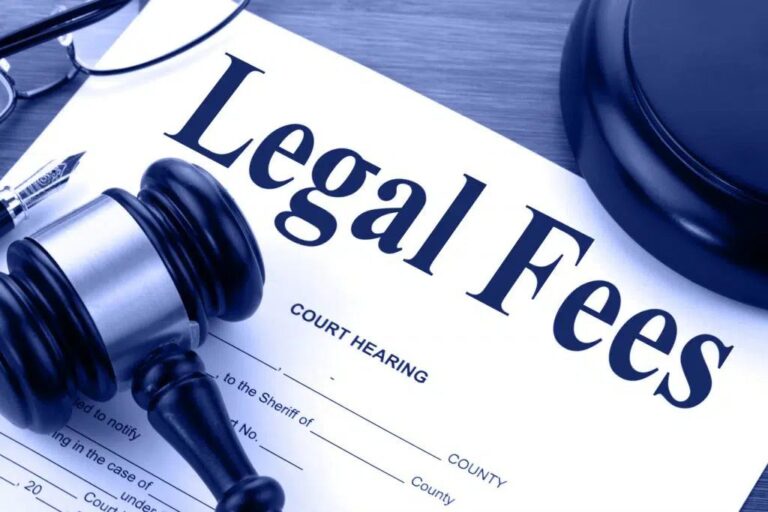Facing Discrimination or Harassment at Work? Know Your Rights and How to Protect Yourself
No one should feel unsafe, devalued, or disrespected at their place of work. Yet, workplace discrimination and harassment continue to be persistent and damaging realities for many employees in Alberta and across Canada. If you’re experiencing mistreatment at work, it’s important to know that you are not alone—and you have legal rights and options.
At Abougoush Law, we understand that what you’re going through is more than just a legal issue—it’s a deeply personal and often emotional journey. That’s why our team of employment lawyers and human rights law specialists are here to guide and support you every step of the way.
Recognizing Discrimination and Harassment at Work
Discrimination occurs when someone is treated unfairly due to personal characteristics that are protected under Alberta law. These include:
- Race or ethnic origin
- Gender or gender identity
- Sexual orientation
- Age
- Religion
- Family or marital status
- Physical or mental disability
- Pregnancy or caregiving responsibilities
Harassment is a form of discrimination that involves unwelcome behavior—comments, actions, or exclusion—that creates a hostile, intimidating, or offensive work environment.
In this guide, we’ll walk you through everything you need to know about unjust dismissal claims in Alberta, and how to take the right steps toward justice and compensation.

A Personal Perspective: Lex’s Story
Sometimes the most important part of a legal journey isn’t just the resolution—it’s how you’re treated along the way.
Lex B, a client who came to Abougoush Law after exploring other legal options, shared:
“I engaged a couple different options before meeting Omar, but it was Omar who showed the passion and empathy for my situation that made the difference. Omar made himself available, I appreciate that he educated me a lot around my case, was very patient, and was empathetic to my situation. There was a personal element to Omar also as he didn’t just get to know my case, but he took time to know me too. Can confidently recommend after a successful outcome.”
This kind of connection—where legal expertise meets human understanding—is what sets Abougoush Law apart.
Your Legal Protections in Alberta
You are protected by several pieces of legislation, including the Alberta Human Rights Act, the Employment Standards Code, and the Canadian Human Rights Act (in federally regulated workplaces). These laws provide:
Protection from retaliation if you report discrimination or participate in an investigation.
The right to reasonable accommodations for disabilities, religious beliefs, or family obligations
Access to remedies such as back pay, reinstatement, or compensation for emotional distress.
Assurance of fair treatment during hiring, employment, and termination.
How Abougoush Law Can Help
At Abougoush Law, we specialize in employment law, labor disputes, and human rights law. Our experienced legal team provides:
Compassionate, client-focused service tailored to your unique circumstances
Strategic legal guidance based on deep knowledge of Alberta’s laws
Representation in negotiations, human rights tribunals, or litigation
A commitment to meaningful resolutions that prioritize your dignity and well-being
Whether you’re navigating subtle microaggressions or facing overt abuse, we approach every case with the care and attention it deserves.
If you believe you’re experiencing workplace discrimination or workplace harassment, consider taking the following practical steps:
When documenting incidents, it’s essential to be thorough and meticulous. Start by recording the date, time, and location of the incident, as well as a detailed description of the conduct that occurred. Identify the individuals involved, including their roles and any relevant details.
Additionally, note the names and contact information of any witnesses who may have seen or heard the incident. This documentation will help you track patterns, facilitate investigations, and provide valuable insights for future reference. By doing so, you’ll be able to create a comprehensive record that can inform decision-making and support accountability.
It’s crucial to safeguard all relevant documents that can serve as evidence or provide context to your situation. This includes preserving emails, text messages, memos, performance evaluations, and any other paperwork that may be pertinent to your case. Make sure to save these documents in a secure location, such as a cloud storage service or an external hard drive, and consider making backup copies to prevent loss or tampering.
By holding onto these documents, you’ll be able to build a strong foundation of supporting materials that can help you substantiate your claims and make a more compelling case.
Familiarizing yourself with your company’s policies and procedures on discrimination and harassment is a crucial step in addressing any concerns. Typically outlined in the employee handbook or internal HR documents, these policies provide a framework for reporting and addressing incidents, as well as the consequences for perpetrators.
By understanding your workplace procedures, you’ll be better equipped to navigate the process, know what to expect, and ensure that your concerns are taken seriously. This knowledge will also help you to identify potential biases or gaps in the process, allowing you to advocate for a more effective and fair resolution.
When reporting an incident, it’s essential to do so in a way that creates a paper trail and ensures that your concerns are taken seriously. If you feel comfortable doing so, consider submitting a written complaint to your manager or HR department, as this provides a permanent record of your report.
A written complaint should clearly outline the incident, including dates, times, locations, and details of what occurred, as well as any relevant supporting evidence. By putting your concerns in writing, you’ll be able to ensure that your report is documented and can be formally addressed, which can help to facilitate a more effective and timely resolution.
When facing a complex workplace situation, it’s crucial to seek guidance from a qualified employment lawyer before making major decisions. A lawyer can provide valuable insights into your rights and obligations, help you assess the strength of your case, and explore potential options, such as negotiating a settlement or filing a formal human rights complaint.
By consulting with a lawyer, you’ll gain a deeper understanding of the legal landscape and be better equipped to make informed decisions about how to proceed, minimizing potential risks and maximizing your chances of achieving a favorable outcome. This expert advice can be especially important when considering significant steps like quitting your job or pursuing litigation.

This article is for general information purposes only and does not constitute legal advice. To discuss your specific situation, please reach out to Abougoush Law directly.



